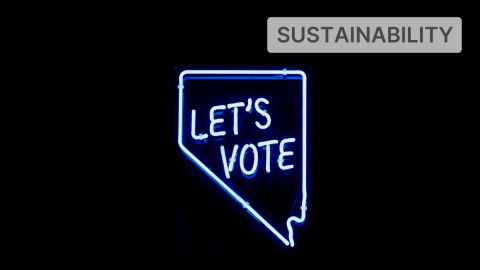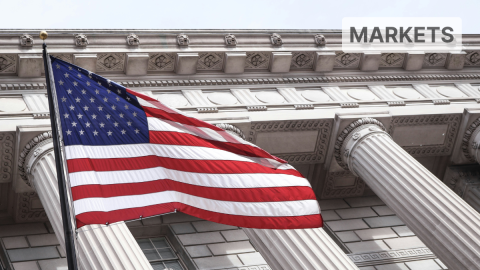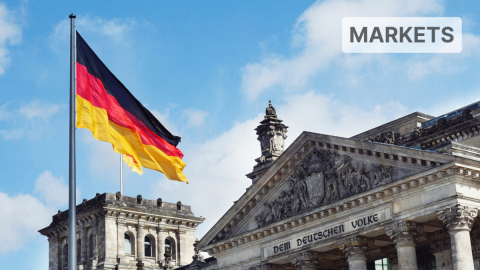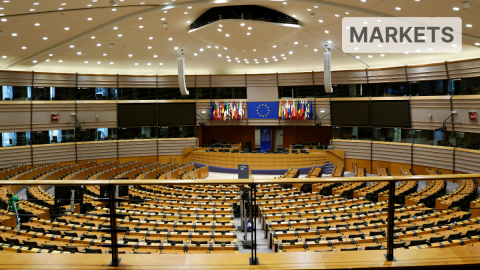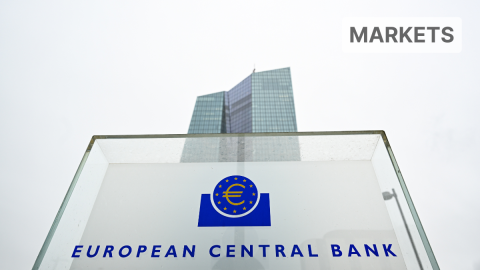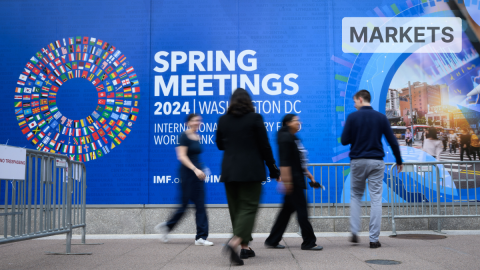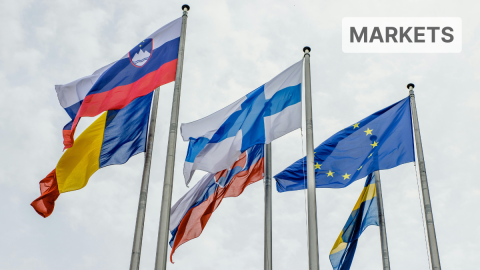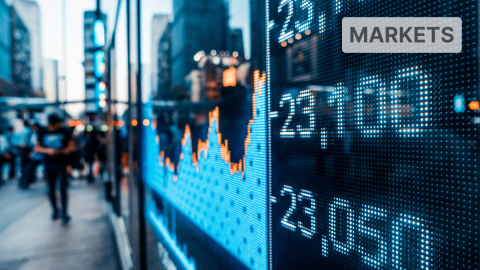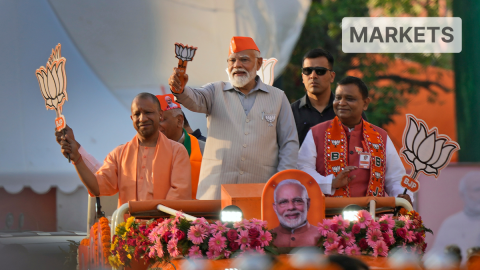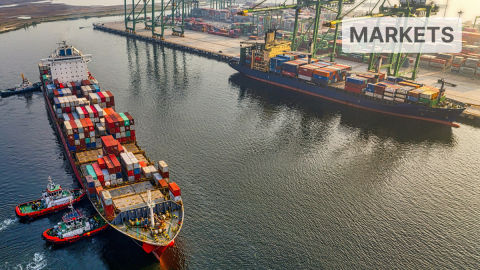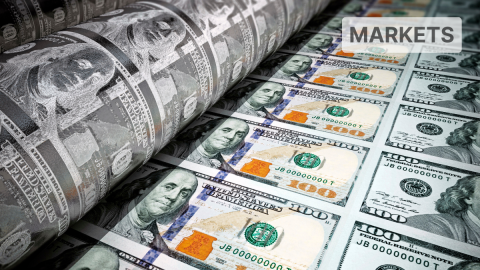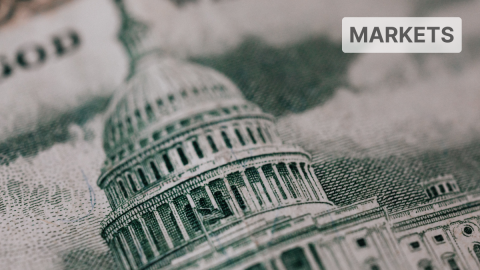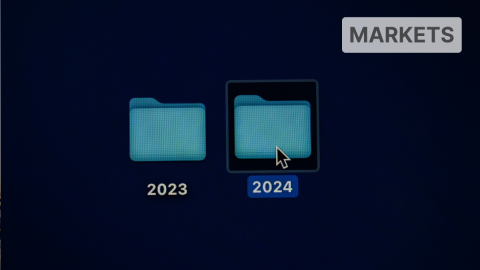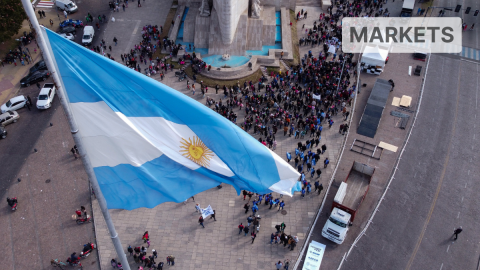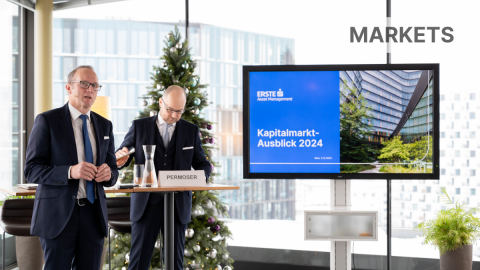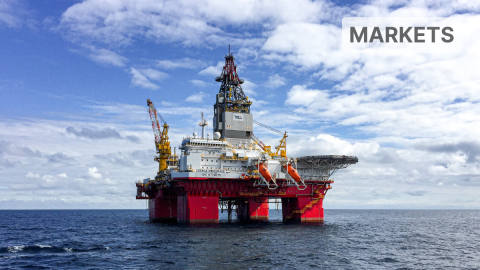All articles on the topic “Markets”

The new age of protectionism
The path towards a clearly fragmented global economy is continuing. Recently, the increase in tariffs on Chinese electric cars in the USA and the European Union has been particularly noticeable. What impact is the rise of protectionism having on the global economy?
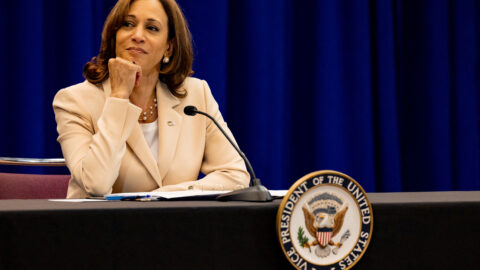
After Biden’s withdrawal: What plans does Kamala Harris have for the economy?
The withdrawal of incumbent US President Joe Biden from the presidential race is bringing new momentum to the election campaign. Kamala Harris, currently Vice President under Biden, is now seen as the likely Democratic candidate. What policies could Harris stand for and what plans could she have for the US economy?
How do climate leaders find their way into our fixed-income portfolios?
Sustainability factors are actively integrated into the investment process in our bond portfolios. This ensures that climate risks are minimized and climate opportunities are actively seized in our corporate bond funds. Fund manager Matthias Hauser explains exactly how this works.
Engagement and voting – worth our while?
Dialogue with management and the active exercise of voting rights are intended to encourage companies to operate in a more environmentally friendly and socially responsible manner – engagement & voting is the keyword. But what are the benefits of these measures? An overview of scientific studies on this topic provides interesting results.
Soft landing beats political uncertainty
With the surprising fall in inflation in the US, the scenario of a “soft landing” has become more likely. Meanwhile, the shocking attempted assassination of US presidential candidate Donald Trump at the weekend will likely have an impact on the current election campaign.
Market commentary: What will the second half of 2024 bring?
The second half of 2024 has already kicked off on the financial markets – but what can investors expect from it? After expectations of interest rate cuts in the US were pushed back further and further in the first half of the year, the scope for the US Federal Reserve could increase again in the remainder of the year. The main focus is likely to be on upcoming political decisions – which could also lead to greater fluctuations.
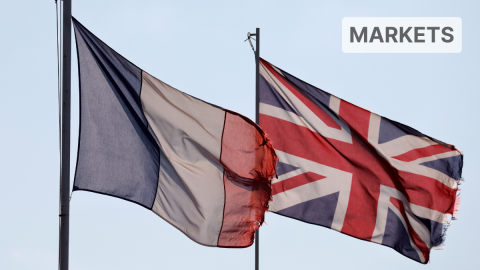
France and UK face economic policy decisions after elections
The recent elections in France and the UK have brought about a realignment of the political balance of power in both countries and thus also a new start for economic policy in the two major economies. What lies ahead for the two countries?
Signs of a slowdown: more scope for central banks?
Economic and political uncertainty is increasing. Nevertheless, inflation is falling in the USA and the eurozone. This increases the scope for central banks to react to a slowdown in economic growth by lowering key interest rates.
Market update: Economists see Germany economy regaining momentum
In football, things have been going well for the European Championship host country Germany recently with its place in the round of 16, but the economy has been in the doldrums in recent quarters. According to leading economists, this could now change. Positive signals from industry and private consumption indicate that the German economy is regaining momentum.
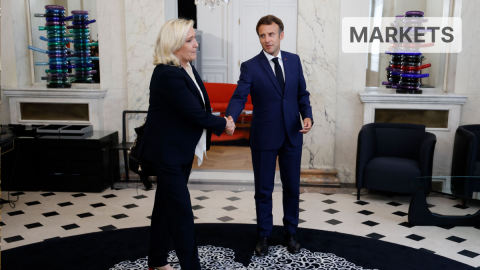
Nationalist forces strengthened in the EU: what could be the consequences?
In the EU parliamentary elections, right-wing parties made significant gains in some major countries. In France, early elections are now on the cards following President Macron’s defeat. What possible effects could a shift to the right have in the EU?
Europe’s Economy Faces Major Challenges After Parliament Elections
The European People’s Party (EPP) remained the strongest group in the EU Parliament in last Sunday’s EU elections. Right-wing populist parties made significant gains in many of the 27 EU member states. What impact will the election result have?
ECB interest rate policy: First rate cut, and then?
The European Central Bank is likely to cut its key interest rate tomorrow for the first time since the interest rate turnaround in 2022. But what comes next? Will the first cut herald a series of interest rate cuts or will the monetary guardians remain cautious? Chief economist Gerhard Winzer takes a look at the ECB’s possible future interest rate policy.
ERSTE OPPORTUNITIES MIX: the most important questions and answers
Taking advantage of short- and medium-term opportunities on the markets while at the same time focusing on long-term future trends – the new mixed fund ERSTE OPPORTUNITIES MIX makes this possible. We have summarized the most important questions and answers on the launch of the new fund.
China hopes to extend its export boom with continued investments
Thanks to booming exports, the Chinese economy started the year with surprisingly strong growth. As growth has now lost some of its momentum, the aim is to keep the export boom going with new investments. However, this could have a negative impact on the trade dispute with the US and the EU.
International Monetary Fund/World Bank Group Spring Meetings 2024
At this year’s spring meeting of the International Monetary Fund and the World Bank, the focus was on the increasingly unlikely recession in the USA as well as the future monetary policy and the political situation. Fund manager Tolgahan Memİşoğlu reports on his impressions.
Short-term opportunities or long-term trends – why not both?
Investing in the major trends of the future while taking advantage of short-term market opportunities – the new mixed fund ERSTE OPPORTUNITIES MIX makes this possible. Alexander Lechner, Head of Multi Asset Management, explains the concept behind the fund in an interview.
Investment strategy: What happened to the recession?
The topic of an impending recession has recently become quieter again – especially in the USA. A look at a few indicators helps to assess whether the spectre of recession has actually been banished (at least for the time being).
20th Anniversary of the 2004 EU Enlargement: The Success Story Continues
The EU is celebrating a political and economic success story with the 20th anniversary of the EU’s eastward enlargement on 1 May. The countries that joined at that time and those that followed have caught up massively in economic terms. The signs continue to point to solid growth in the region.
At the pulse of opportunity – new mixed fund about to launch!
Combining long-term trend themes with short and medium-term market opportunities: The new broadly diversified mixed fund ERSTE OPPORTUNITIES MIX makes this possible with its active and flexible approach.
Animal Spirits – Excessively positive sentiment on the markets?
The stock markets performed consistently well in the first quarter of the current year. From the USA to Europe and Japan, many indices reached new all-time highs. In view of this positive performance, can we already speak of exaggerated euphoria on the markets?
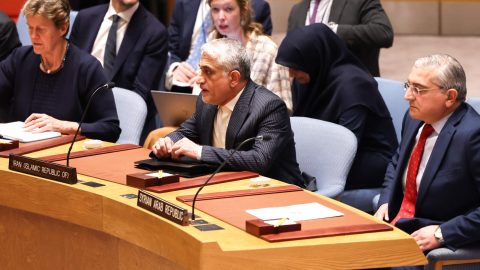
Attack on Israel
The smouldering conflagration in the Middle East reached a new level of escalation last weekend. Iran attacked Israel directly with drones and missiles for the first time in history. There is a risk of further escalation between Iran and Israel. How is the market reacting to this?
“Back to business” after the election in India?
The parliamentary elections in India, which will last 44 days, will begin in the coming days. The economically up-and-coming country has also recently become the most populous country in the world. What can we expect from the election and how could India develop afterwards?
Favorable indicators: Soft landing on approach?
More and more indicators are pointing to good global growth. Even regions and sectors that had recently weakened are likely to return to growth. The soft landing after the sharp rise in inflation and the turnaround in interest rates could succeed. The decline in inflation is pausing at the same time, as yesterday’s US inflation data shows.
Interest rate cuts and economic growth – a favourable environment for the markets
Even though the ECB recently left its key interest rate unchanged, central banks are increasingly signaling an inclination to cut interest rates for the first time. At the same time, the indicators point to good economic growth at a global level. These are positive signals for the stock markets.
What is the key interest rate?
Ahead of the ECB’s upcoming interest rate decision, there is much discussion about the central banks’ interest rate policy and the key interest rate – will it be lowered or not? Its development has a significant influence on the economy and the financial markets. In this article, we discuss the role of the key interest rate and which interest rates are relevant.
Swimming against the tide with alternative investments
Alternative investment strategies are not comparable with traditional asset classes such as equities or bonds – this is precisely their charm. But how do these strategies work and how can investors invest in them?
Global Economy: IMF with more positive outlook
According to the IMF, the global economy could grow more strongly than expected this year. In the US and China, the economy is likely to remain robust, although growth in the People’s Republic is likely to weaken. The experts are less optimistic about the German economy.
US interest rates: What are we to expect in the coming months?
As the latest data shows, the US economy continues to grow strongly – despite the significant interest rate hikes in the past two years. What impact will this have on the Federal Reserve’s future interest rate policy and when could the first rate cuts follow?
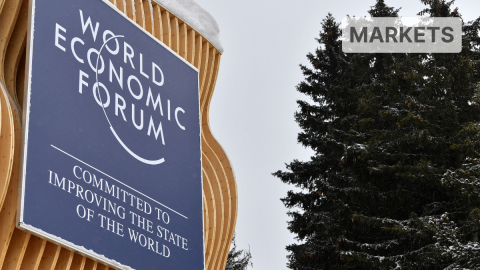
Davos 2024: Climate Crisis, AI, geopolitics and interest rates were key topics
Last week, many high-ranking representatives from politics and business once again gathered in Davos, Switzerland, for the annual World Economic Forum. The most pressing topics were the use of AI, the climate crisis and geopolitical tensions. Meanwhile, central bankers made interesting statements on future interest rate policy.
Inflation, interest rates, markets: 10 topics for 2024
After the price rally at the end of last year, the markets started 2024 with price losses. The ongoing positive correlation between bonds and equities is striking. Both asset classes have fallen equally recently, which makes diversification in a portfolio more difficult. But the year has only just begun. We therefore take a look at 10 key topics for 2024 that could be helpful when putting together a portfolio.
Money tip: Invest in Japanese stocks
Following the recent gains in the Japanese benchmark index, the stock market of the world’s third-largest economy could be worth a look. What is the state of the economy and monetary policy in the “Land of the Rising Sun” and how can investors invest in Japanese stocks?
Market outlook: What investors can expect in 2024
2023 brought many surprises – including positive ones, such as the unexpectedly good performance across all asset classes. What can investors expect in the new year and which topics could come into focus? Gerald Stadlbauer, Head of Discretionary Portfolio Management, provides an outlook.
US elections 2024: The United States and its debt
In 2024, all eyes on the financial markets are also focused on the US elections in November. After years of expansionary fiscal policy, the debt situation in the United States is also coming back into focus in the run-up to the elections. What are the political and economic implications of the growing budget deficit?
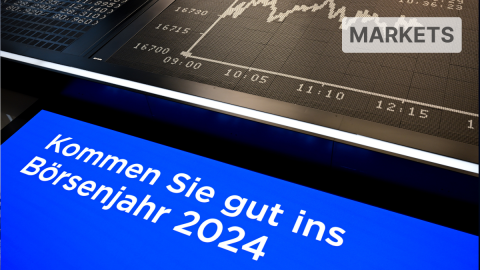
Stock markets review: Hopes for interest rate cuts fuelled significant gains in 2023
The international stock markets closed out 2023 with significant gains. Hopes of abating inflationary pressure and declining interest rates were the main market drivers in Q4, resulting in a strong year for stock exchanges.
Best of Charts: What’s coming, what’s going, what’s staying?
After a weak market year in 2022, 2023 is shaping up to be a pleasing conclusion for investors. Senior Fund Manager Christian Süttinger explains what remains of this year and what could be of particular interest on the markets in 2024 with the help of a few currently important charts.
Argentina: Javier Milei Presidente! Wind of Change?
Following his surprising election victory, the controversial economist and self-proclaimed “anarcho-capitalist” Javier Milei was sworn in as Argentina’s new president. He takes over a country in economic crisis with an annual inflation rate of over 100 percent and a high debt burden.
Capital markets outlook 2024: good opportunities in the US election year
After a difficult market year in 2022, many asset classes performed much better this year. The outlook for the coming year 2024 is also positive – the central banks’ turnaround in interest rates has brought about a return to normality on the bond market and, with the rise in yields, is also opening up new opportunities for investors. At the same time, the ongoing geopolitical tensions in particular pose a challenge. With the improved yield opportunities for bonds, mixed funds are also coming back into focus.
Members of OPEC+ plan to further cut oil production
The OPEC+ oil association was unable to agree on official production cuts at its meeting last Thursday. However, individual member states announced plans for cuts. In a joint statement after the meeting, the more than twenty OPEC+ states also announced that Brazil would join the production alliance at the beginning of next year.
Increasing optimism for a “soft” economic landing
While equities have recently risen, yields on the bond market have weakened. The markets are being supported by increasing hopes of a “soft” landing for the economy. What are the chances of this scenario?
Surprise result in the Dutch elections
After around a year, the Dutch government under Prime Minister Rutte collapsed in the summer of 2023 due to disagreement over migration policy. It came as a surprise that long-serving Prime Minister Rutte decided not to stand again in the next elections. After more than thirteen years in office, making him the longest-serving prime minister […]
Can China’s economy still be revived after the slowdown?
According to Covid, growth in the Chinese economy is lower than expected and the willingness to invest and consume is declining. The real estate market is also adjusting after the boom years. What short- and long-term measures does the central government intend to take to revive the economy?
More Optimistic Outlook for German Economy among Experts
Stock market professionals are less pessimistic about the prospects for the German economy in the next six months. This is shown by the current economic barometer of the Center for European Economic Research (ZEW). The government also wants to get the economy moving again with additional relief measures.
Encouraging fall in inflation
Since the beginning of November the prices of both risky security classes such as equities and credit-safe government bonds have been on the rise. The market appears to be increasingly pricing in a so-called “soft” landing for the economy. The probability of this actually increased over the course of the year. However, the economic data published in recent weeks and months does not contradict the “hard” landing scenario.
Soft-landing optimism might be in for some disappointment
The financial environment has become slightly more relaxed since the beginning of November. This fact is manifesting itself on the market in the form of falling yields and rising share prices. This week, two indicators relating to the US economy in particular could provide clues as to the sustainability of this trend since the beginning of the month: retail sales and consumer prices.
Holiday sales: Hopes for record season in the US
The robust labor market and many special offers give hope for another record Christmas season in the USA. The latest market research data also shows that, despite inflation and high interest rates, Americans are once again planning to spend more over the holidays this year.
India and the West – at the crossroads?
India was recently in the spotlight as the venue for the G20 summit. Shortly thereafter, however, the relationship with the major Western states cooled. How will the West’s relationship with India develop and what role will the country play in the future?
Middle East Conflict continues: worries about expansion to other countries
Roughly two weeks after the surprising terrorist attacks by the radical Islamic Hamas ruling the Gaza Strip, on targets in Israel, the military conflict in the country continues unabated. The war in the region also continues to dominate the financial and commodity markets, with global concerns that the conflict could possibly spread to other countries in the Middle East being the main driver of uncertainty.
Artificial Intelligence – Tool or Toy?
There is hardly any getting around artificial intelligence (AI). Are we only at the beginning of an AI hype or has it already peaked? For whom is AI good business at all and what can the new technology actually be used for?
Gold: From means of payment to safe haven
Gold has played an important role in the financial and economic system for centuries. While it initially served as a means of payment, the role of the precious metal increasingly changed over the course of history to become a crisis currency and a store of wealth in uncertain times.
Market commentary: Is the interest rate peak reached?
“Higher for longer” has become the mantra of the powerful central bankers in recent months. Monetary policy is likely to remain restrictive longer than originally expected. Regardless of whether the major central banks will follow up with a final interest rate step in autumn, the interest rate peak has probably been reached and “the worst” is behind us.


